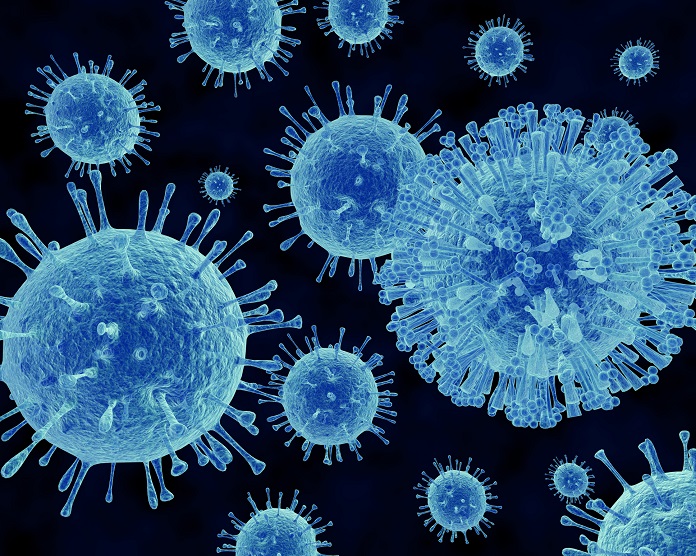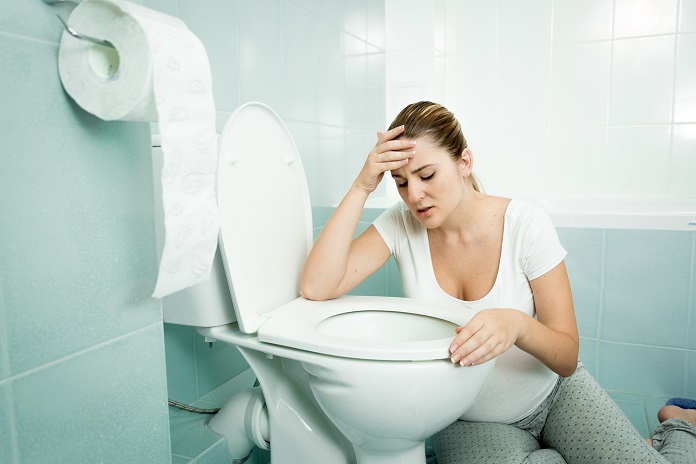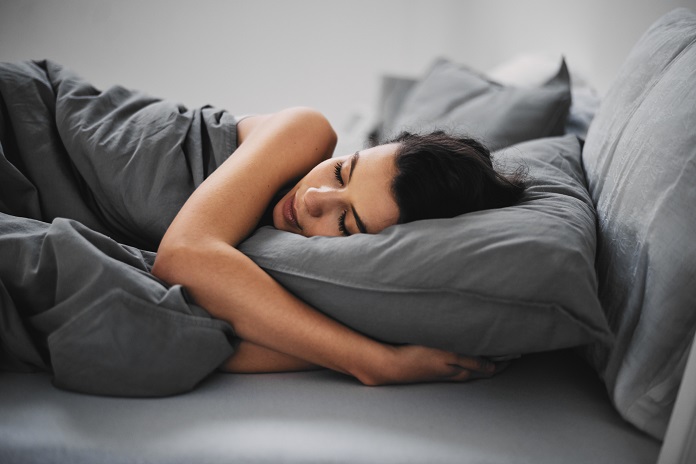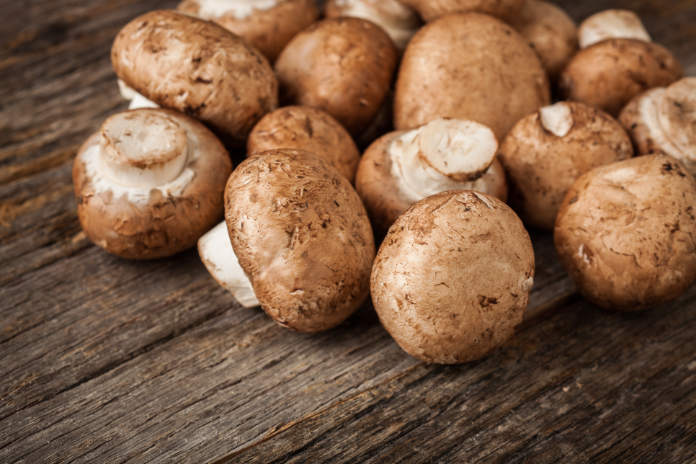Yes, winter is back, and while we can all look forward to the excesses of the festive season, there’s one element of the colder months that nobody enjoys: norovirus. More unpleasantly known as the ‘winter vomiting bug’, this highly contagious viral infection can’t be entirely avoided, but you can take steps to prevent yourself catching norovirus.
Sick season is unflappably constant, but you don’t have to catch norovirus every time November rolls around. It’s all about knowing your enemy.

What is norovirus?
In the UK, norovirus is the most common stomach bug with around one million people contracting it each year, explains GP Dr Roger Henderson.
“The virus is incredibly contagious and can be passed on through contact with an infected person, or contact with contaminated surfaces or objects. Faecal matter can also carry the virus, meaning it can be found on toilet seats and handles,” he explains.
“You can also get norovirus from contaminated food and water, especially bivalve molluscs, such as oysters, mussels, clams, cockles and scallops.”

It will bring you down fast
Norovirus doesn’t take long to turn you into an extra from The Walking Dead. The virus particles are extremely fast-acting, and are usually ingested through either your mouth or nose. It has a very short incubation period. Once you’ve come into contact with the virus, it only takes 12-48 hours for symptoms to kick in.
It hits the stomach first, but it’s only when norovirus arrives at the small intestine that it really begins to multiply. This is generally when you start to feel the first twinges of nausea. Much like a parasite, the virus is not able to operate as a single agent – it needs living cells to feed from. Once it’s gained control, it’s able to spread like wildfire by attaching itself to healthy cells in the lining the intestine.
During this early incubation period, the infected cells explode. They produce replicas of the virus and release more infected particles into the bloodstream.

Norovirus lasts for 48 hours
At this point, you’ll begin to feel very unwell. Your body’s immune system will twig that something isn’t quite right and begin to produce antibodies to fight the infected cells.
You may experience sudden projectile vomiting and watery diarrhoea as your body attempts to fight the infection. While this may be alarming in its unpleasantness, these are your body’s natural trigger-responses as your immune system toils to flush the particles out of your body.
The irony is, though, the worst side-effects of norovirus that keep us glued to the toilet are, in fact, completely pointless. The virus affects the small intestine, not the stomach, which means vomiting and diarrhoea do very little to help.
As well as the dreaded toilet runs, Dr Henderson notes that you may experience stomach cramps, abdominal pain, fatigue and a mild fever while you’re contagious.
The good news is, norovirus tends to leave as quickly as it arrives, usually lasting one to two days. People generally find they continue to feel weak for a few days afterwards. This is because the immune systems works overtime to battle against the infection, gradually locating the infected cells and deactivating them.

Recovery from norovirus takes a while
At this point, you’re probably wondering if there’s something you can do to speed up the recovery process. The short answer is no.
“There is no specific treatment for the virus but to let the illness run its course,” says Henderson. “While the symptoms are not pleasant, most people make a full recovery within a few days. Both vomiting and diarrhoea cause loss of water from the body, so you need to drink plenty of liquids to replace lost fluids. Antidiarrheal medicines such as loperamide can ease symptoms, while paracetamol helps aches and pains.”
Henderson advises staying at home away from other people until 48 hours after the symptoms have passed.
“Because it is highly contagious, the best thing is to stay at home and away from public places – including your doctor’s surgery. You should also disinfect all surfaces that have been contaminated by the virus, such as toilets, bedding and walls.”

How to prevent norovirus
The best way to prevent norovirus spreading is by avoiding contact with anybody who’s already caught it until they’re completely recovered.
That said, it never hurts to give your body’s defences a helping hand. BioCare senior clinical nutrition advisor Emily Blake shares five ways to help build up a strong defence against winter’s worst enemy.
1. Eat for the time of year
Blake advises packing your diet full of immune-supportive nutrients and herbs, especially those with anti-viral properties such as elderberry, sage, beta glucans, zinc, and vitamins A, C and D.
“Key foods include mushrooms, pumpkin seeds, organic meat and offal, oily fish, citrus, berries, and raw leafy greens (such as broccoli and kale).
“Elderberry, for instance, has a unique property of being able to ‘blunt’ the spikes on the outside of viruses. It stops them from entering the cells where they would otherwise reproduce, making it a powerful tool in the prevention of viral infections.”
Arming ourselves with these nutrients and herbs through diet, as well as supplementation, can provide us with optimal baseline nutrition throughout winter. To help prevent norovirus, Blake advises trying BioCare’s Immune Intensive (available on Amazon), a supplement that’s formulated to help support normal immune function.
2. Get a vitamin D test
“We are all prone to sub-optimal vitamin D levels at this time of the year, as we become more indoor-bound and less exposed to sunlight,” warns Blake.

“Some of us can be particularly vulnerable to this, such as the elderly, pregnant women and new mums. The last thing we need is something as basic as this increasing our susceptibility to infection.”
A vitamin D test can let you know whether you’re flagging in this area. You can either book one through the GP or privately. “If your results are low, contact a registered nutritional therapist in your area. This will enable them to recommend a supplemental dosage of vitamin D tailored to your unique needs,” advises Blake. “Alternatively, you can start by taking a safe, moderate dose of 1000IU vitamin D3 from a supplement.”
Public Health England recommends a daily 10mcg vitamin D supplement during winter months when there isn’t enough sunlight for our bodies to produce the levels we need. This could be part of the reason bugs spread more in winter, and the key to preventing norovirus.
3. Prioritise good quality sleep and relaxation
Sleep is our nightly golden opportunity for our body and immune system to rest and repair. This will help to prevent norovirus, and speed up your recovery.
“Good sleep is just as important as good nutrition when trying to strengthen our immune system, which is something many people don’t realise,” notes Blake.
“Aim for seven to eight hours of uninterrupted sleep per night. An eye mask, ear plugs, an aromatherapy bath before bed and increasing your intake of calming nutrients such as magnesium can all help you to achieve an early night.

“Equally, a chronic stress response drains our immune system, so it is also important to incorporate a form of relaxation into your daily life, whether it be a walk outside on your lunch break or an evening meditation or yoga session.”
4. Watch your sugar and alcohol intake
As we approach Christmas, we can become deluged with opportunities for indulgence. While Blake says this can be lovely in moderation, we need to be aware of the negative impact of sugar and alcohol on our health, not least on our immune function.
“Where possible, try to choose healthier alternatives, such as dark chocolate, nuts and dates,” suggests Blake.
5. Enjoy prebiotic and probiotic rich foods
“Prebiotics and probiotics strengthen the colonies of beneficial bacteria residing in our gut, which also play a major role in our immunity,” says Blake. She suggests tucking into foods such as onions, garlic, leeks, Jerusalem artichoke, raw sauerkraut and kefir on a daily basis: “They taste great and are doing you a world of good at the same time!”
To help you reach a therapeutic dosage with the potential to improve your resilience to infection, she suggests considering supplementing with well-researched human strains of beneficial bacteria. These include Lactobacillus acidophilus, Bifidobacterium lactis, and Bifidobacterium bifidum.
A final tip on how to prevent norovirus? Good hygiene. Washing your hands after using the toilet should involve a good scrub with anti-bacterial soap, not just a quick splash of water before you run out of the bathroom.
Norovirus is also good motivation for a delayed spring clean. Scour your surfaces, but don’t overlook places that might have been touched by a sick partner or family member. These include remote controls, phones, doorknobs and keyboards.
The virus can linger on hard surfaces for days and withstand many basic anti-bacterial sprays, so throw on your Marigolds and start scrubbing with a diluted bleach solution.
You may also be interested in…
This article may include affiliate links to products and services where we may receive a small fee to support the running of this site if you make a purchase or is a sponsored article from one of our select editorial partners providing valuable advice and information to our readers.

































































